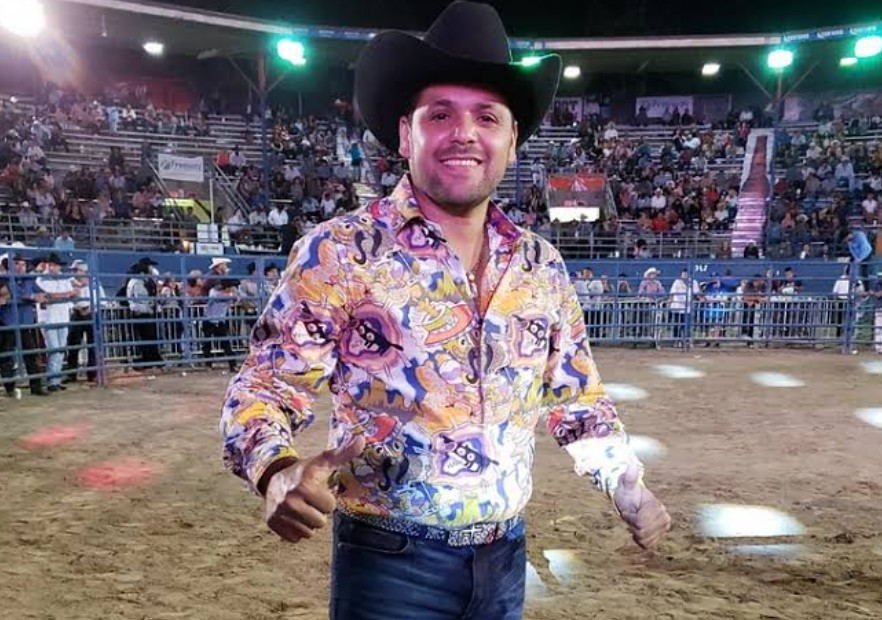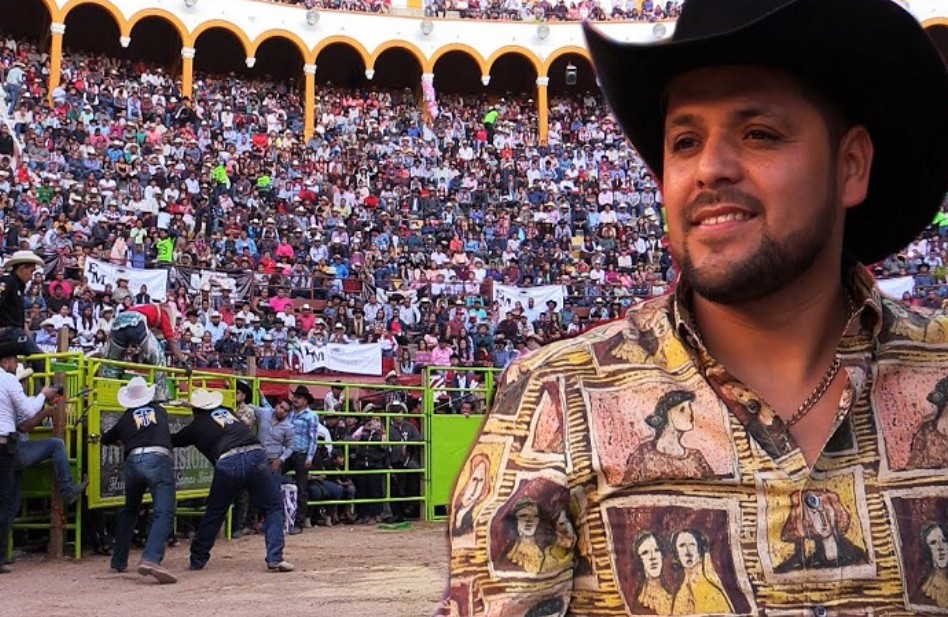Hugo Figueroa Shot 100 Times in Viral Video
The violent climate of Mexico has once again claimed the life of a prominent figure, shaking both the entertainment industry and the communities tied to rodeo culture. In January 2019, the body of Hugo Figueroa, the nephew-in-law of the legendary Mexican singer Joan Sebastian, was found in Michoacán. His death followed a chilling kidnapping that occurred after a rodeo event, a popular tradition in rural Mexico. The murder not only devastated his family and fans but also drew attention to the persistent issues of insecurity, cartel influence, and lack of trust in the authorities that plague regions like Michoacán.

Contents
The Events Leading to the Kidnapping and Video
On Sunday, January 27, 2019, Hugo Figueroa was overseeing a rodeo at the Plaza de Toros La Aurora in the municipality of Tarímbaro, Michoacán. The event had been expected to be a lively gathering of families and rodeo enthusiasts, a continuation of traditions celebrated for generations.
Uncensored video of the Hugo Figueroa case sparks public controversy
However, the atmosphere shifted drastically when gunfire erupted. According to reports, one man was killed, and another was injured in the shootout. Witnesses described the chaos as people scrambled for safety amid the violence. The rodeo, intended as a festive occasion, became a scene of panic and bloodshed.
The gunfire, however, was only a precursor to the far darker event that followed the kidnapping of Figueroa himself.
Who Was Hugo Figueroa?
Hugo Figueroa was more than just a name linked to the famous Figueroa family. He had built his own reputation as an organizer of jaripeos, a form of rodeo deeply rooted in Mexican tradition. These events often drew large crowds and carried cultural significance, blending entertainment, music, and rural identity.

His connection to music royalty came through his marriage: he was the nephew-in-law of Joan Sebastian, one of Mexico’s most beloved singers and songwriters. Joan Sebastian, known as “El Rey del Jaripeo,” was not only a musical legend but also a figure deeply tied to ranching and rodeo life, which made the Figueroa family name synonymous with these traditions. For Hugo, continuing in this world was not just a profession but part of a family legacy.
Among his peers and community, Hugo was seen as a passionate businessman and event organizer who maintained a strong connection to Mexican culture. His tragic death would later underscore how even those embedded in cultural traditions are not immune to the violence sweeping across regions like Michoacán.
The Kidnapping Incident
In the aftermath of the shooting, armed men targeted Hugo Figueroa. According to eyewitness accounts, the attackers surrounded him, forcibly taking him away from the rodeo grounds. The abduction appeared to be premeditated, with the shootout serving as both a diversion and a warning.
The motivations behind the kidnapping remain speculative, but the involvement of organized crime groups has been widely discussed. Michoacán has long been a region where cartel-related violence intersects with everyday life, and public figures like Figueroa, associated with wealth and influence, often become targets.
The abduction left the local community in shock. Families who had gathered for a day of entertainment were left traumatized by the violence they witnessed, while Figueroa’s loved ones faced the nightmare of uncertainty regarding his fate.
The Discovery of His Body
After days of anguish, the worst fears were confirmed. On Thursday, January 31, 2019, authorities discovered the body of Hugo Figueroa in Michoacán. The details of the discovery were grim, marking the end of a four-day search that had gripped both his family and the public.
The news was officially confirmed by Yolanda Figueroa, his mother-in-law and the sister of Joan Sebastian. Her confirmation carried significant weight, not only because of her family ties but also because it connected the tragedy to one of Mexico’s most famous artistic dynasties.
The death devastated the Figueroa family. Coming only a few years after the passing of Joan Sebastian in 2015, it added another painful chapter to a family already acquainted with tragedy. For fans and friends, the loss of Hugo represented not only the end of a life but also the silencing of a figure who had worked tirelessly to preserve traditions of music and rodeo.
Authorities’ Response and Controversy
One of the most controversial aspects of the case was the response or lack thereof by authorities. The Attorney General’s Office of Michoacán stated that it had not launched an official investigation into the kidnapping at the time of Figueroa’s disappearance. The reason? His family had not filed a formal complaint with authorities.
This revelation sparked criticism and outrage. In regions plagued by organized crime, families often fear retaliation if they seek help from the authorities. This climate of fear contributes to a cycle where kidnappings and murders go uninvestigated, further emboldening criminals.
Critics argued that given Figueroa’s high profile, authorities should have acted swiftly, regardless of a formal complaint. Instead, the delay highlighted systemic issues of corruption, inefficiency, and public distrust in law enforcement in Michoacán.
Impact on the Community and Entertainment World
The death of Hugo Figueroa reverberated far beyond Tarímbaro. In the world of entertainment and rodeo culture, his killing was a devastating reminder of the dangers faced by public figures in Mexico.
Fans of the Figueroa family, still mourning Joan Sebastian, expressed their grief and anger on social media. Messages of condolence poured in from across the entertainment industry, reflecting the impact Hugo had made both through his family connections and his personal contributions to cultural traditions.
For communities that cherished the jaripeo, his death cast a shadow over an institution that had long been a source of pride. What was once a symbol of heritage and celebration became tainted with the fear of violence.
Violence and Insecurity in Michoacán
To understand the significance of Figueroa’s death, it must be placed within the broader context of violence in Michoacán. The state has been one of the hardest hit by cartel wars, with groups like Los Viagras, Knights Templar, and other organized crime factions battling for control of territory.
Kidnappings, extortion, and targeted killings have become tragically common. In this climate, ranch owners, businessmen, and entertainers often find themselves caught in the crossfire. The case of Hugo Figueroa was not an isolated incident but part of a broader pattern of violence that has destabilized communities and eroded trust in public institutions.
The failure of authorities to respond decisively to Figueroa’s kidnapping reflects the larger struggles of the Mexican state in curbing organized crime. Despite military interventions and government programs, regions like Michoacán remain plagued by insecurity.
The tragic death of Hugo Figueroa stands as both a personal loss for his family and a broader symbol of the violence that continues to haunt Mexico. As the nephew-in-law of Joan Sebastian, his passing carried cultural resonance, but beyond his famous ties, it represented the silencing of a man devoted to preserving tradition and bringing communities together through rodeo culture.
His abduction and murder exposed the vulnerabilities of public figures and underscored the systemic failures of authorities in addressing violent crime. For the Figueroa family, the tragedy added yet another painful chapter, while for the public, it highlighted the urgent need for justice and security in regions torn apart by organized crime.
In the end, the legacy of Hugo Figueroa lies not only in the events that marked his death but also in the traditions he sought to preserve. His story is a reminder of the human toll of violence in Mexico and of the resilience of families and communities who continue to demand peace in the face of fear.
Daily News -Kaeelen Garcia Viral Video and Digital Scandal
Ikbal Uzuner Video and The Case of Semih Çelik
Nermin Sulejmanović Video and The Tragic Case
Victoria Tesla Video and Sparked Debate on Social Media
Obdulia Sanchez Video and a Viral Tragedy
Lily Phillips 100 in One Day Challenge Video and Endurance
Gorilla Mask Video and Controversy in Online Culture

